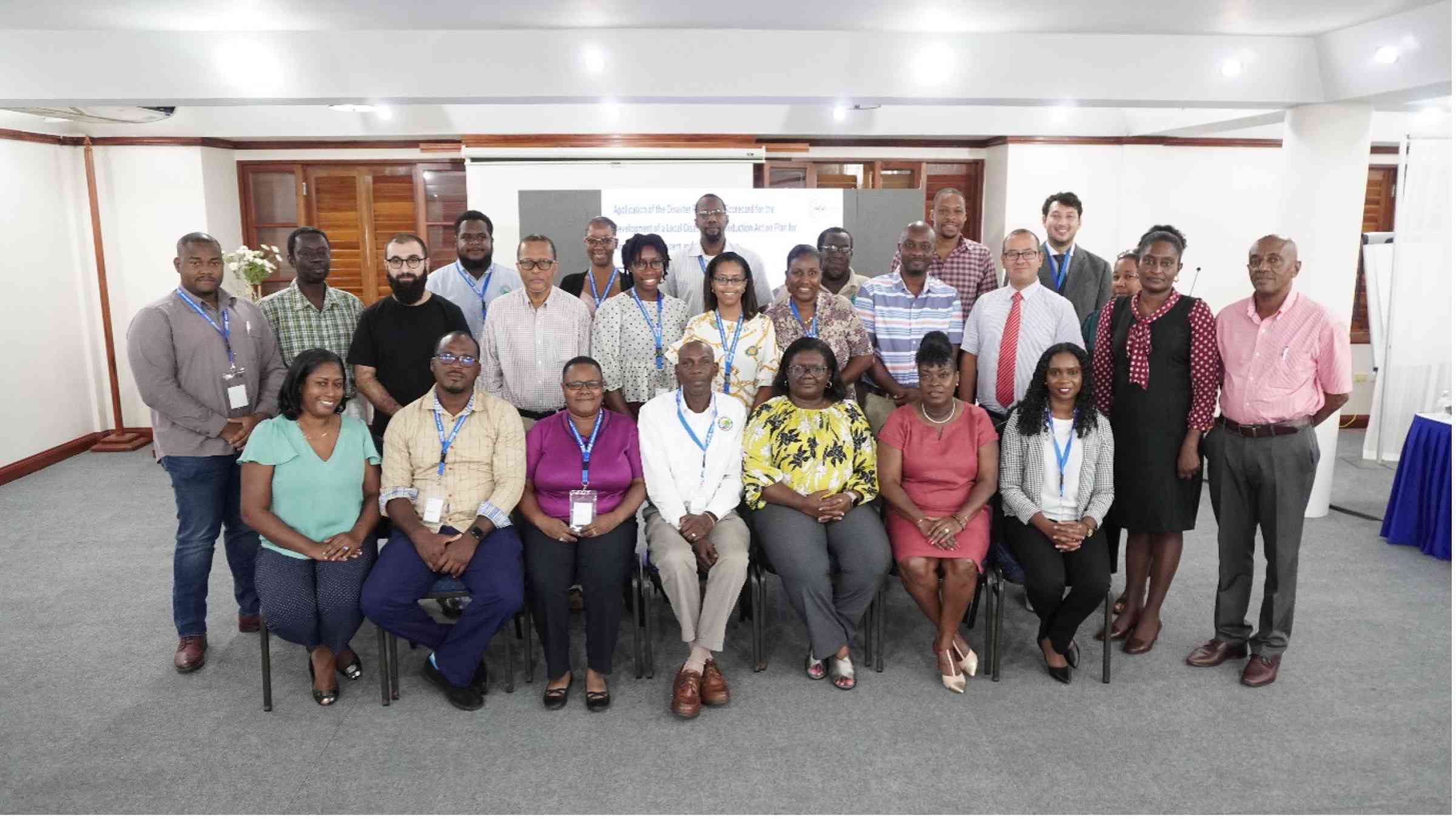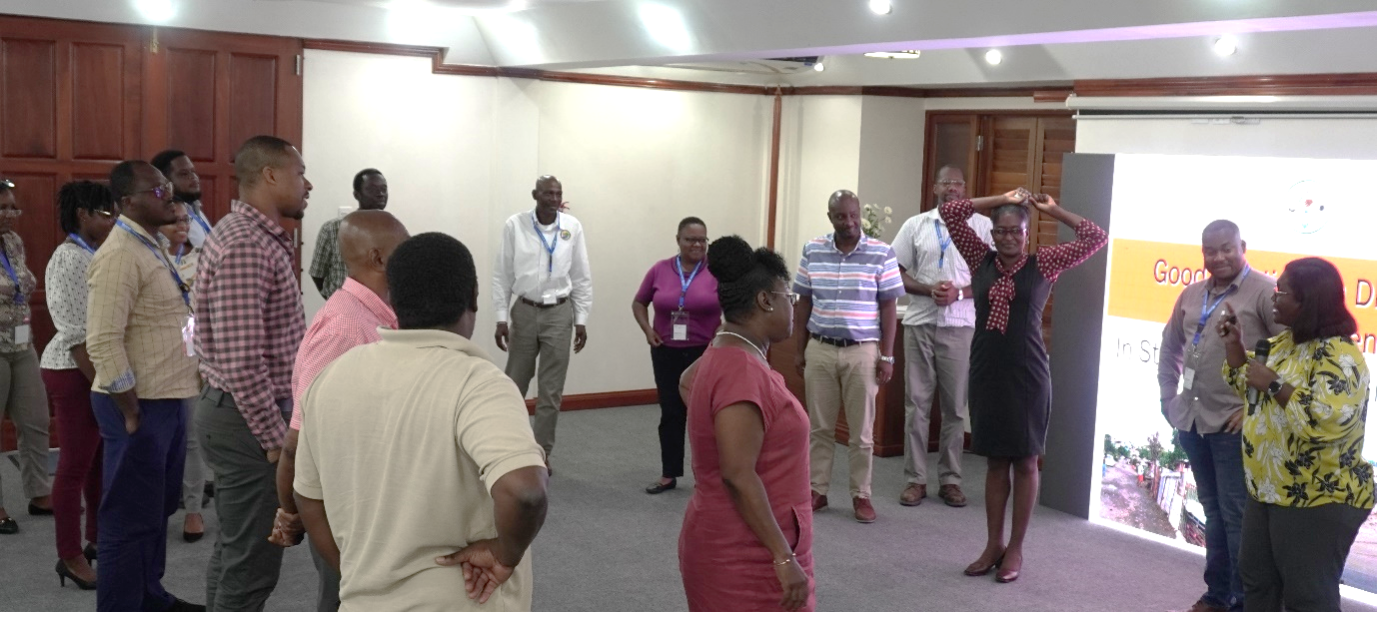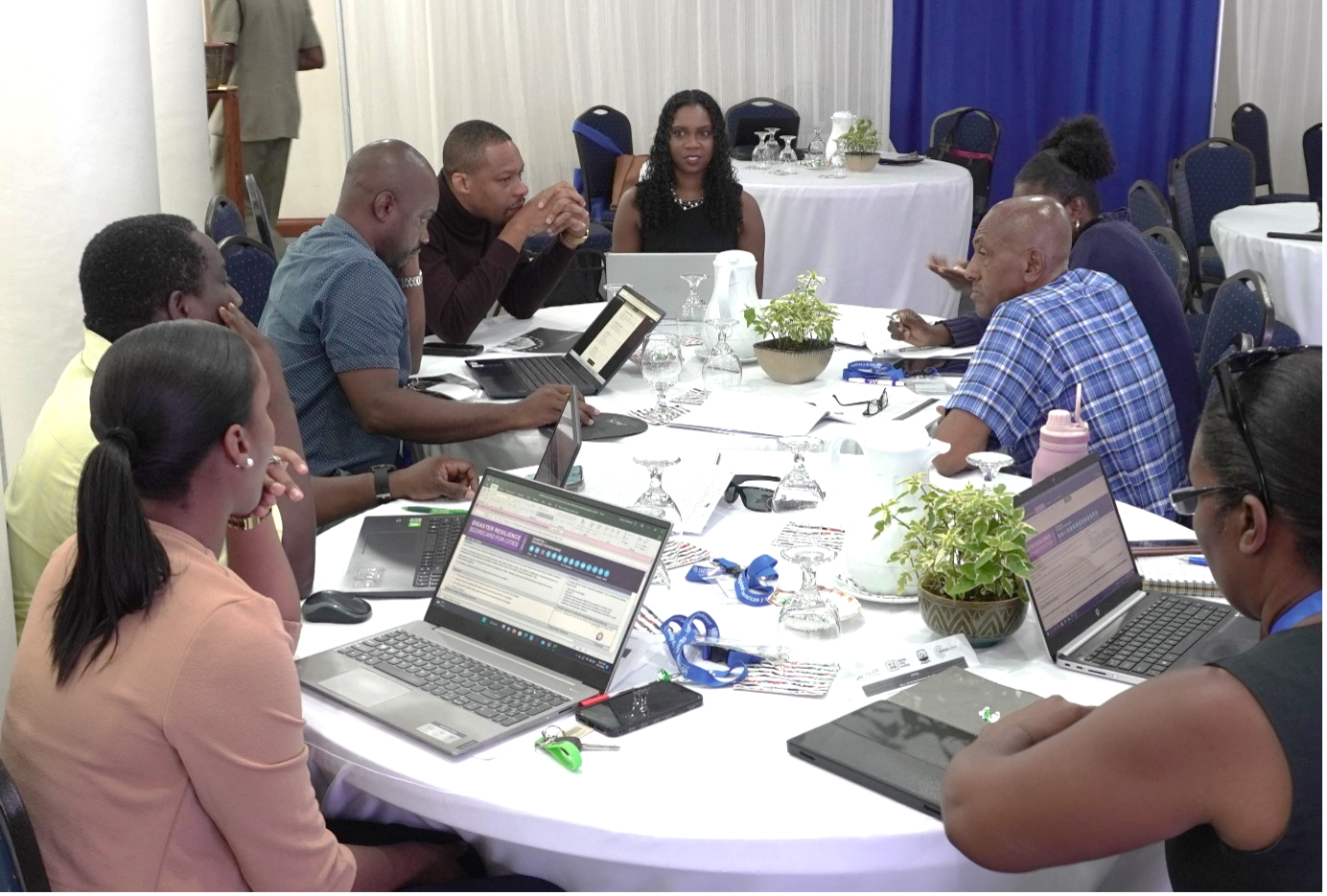MCR2030 in St. Vincent and the Grenadines: Application of the Disaster Resilience Scorecard to support the development of Arnos Vale’s Local Disaster Risk Reduction Action Plan

Target E of the Sendai Framework for Disaster Risk Reduction aims to “substantially increase the number of countries with national and local disaster risk reduction strategies,” and while there has been significant advancement at the national levels, there is a need for enhanced planning for disaster risk reduction at the local levels.
The Making Cities Resilient 2030 (MCR2030) Initiative advocates for resilience building at the local level, bringing cities on a pathway to resilience in alignment with key global instruments including the Sendai Framework for Disaster Risk Reduction, Paris Agreement, New Urban Agenda, and the Sustainable Development Goals. The initiative recognizes the growing need for a systemic and articulated approach to risk reduction that enables local government leaders to plan for risk-informed development for the benefit of the growing urban population. It looks for an understanding of risk by cities and communities to ensure their commitment to disaster risk reduction and resilience at the local level; strengthen the capacity of cities to develop local strategies/plans to build their resilience, and support cities in implementing local strategies/plans to strengthen resilience.
Our regional mission in the Americas and the Caribbean over the next months is to accelerate action at the local level by adopting a thematic and people-centered approach to resilience, climate adaptation, and disaster risk reduction. Our vision is to be catalysts for integrating resilience policies with multi-stakeholder partnerships for safer and more sustainable human settlements, leaving no municipality behind.

Objectives in St. Vincent and the Grenadines
Within this context, the United Nations Office for Disaster Risk Reduction Office (UNDRR) partnered with the National Emergency Management Organization (NEMO) to support the development of Arnos Vale’s Disaster Risk Reduction Action Plan in St. Vincent and the Grenadines. MCR2030 seeks to advance local disaster risk reduction and resilience action for Arnos Vale, further advancing St. Vincent and the Grenadines on a pathway to achieving Target E of the Sendai Framework.
Adopting a participatory approach through workshops involving key stakeholders for local disaster risk reduction and resilience in Arnos Vale, the initiative assessed core areas based upon the 10 Essentials to Making Cities Resilient to inform a Disaster Risk Reduction Action Plan, in alignment with relevant country priorities, policies and strategies, such as the National Economic and Social Development Plan, and the enhancement of multi-hazard early warning systems in support of local resilience.

Implementation
MCR2030 in partnership with NEMO, and with financial support of the Climate Risk Early Warning Systems (CREWS) initiative, implemented a series of workshops on November 9th this year, where stakeholders were convened for assessment activities to inform the Scorecard results and subsequently the Action Plan. The workshop was structured by first, a capacity building segment along national to local context. Subsequently, it involved the implementation of the Quick Risk Estimation Tool and the Scorecard to Making Cities Resilient. Lastly, the participants identified priorities to include in the DRR Action Plan for Arnos Vale.
Expected Outcomes
MCR2030 will see the development of a local Disaster Risk Reduction Action Plan for Arnos Vales. The Action Plan will serve as a suite of activities/actions with associated owners, timelines and indicators, to support vertical integration for resilience. Serving as a pilot initiative for St. Vincent and the Grenadines, the initiative will also identify inspiring practices and learnings for future implementation in other areas of the country and the Eastern Caribbean.

